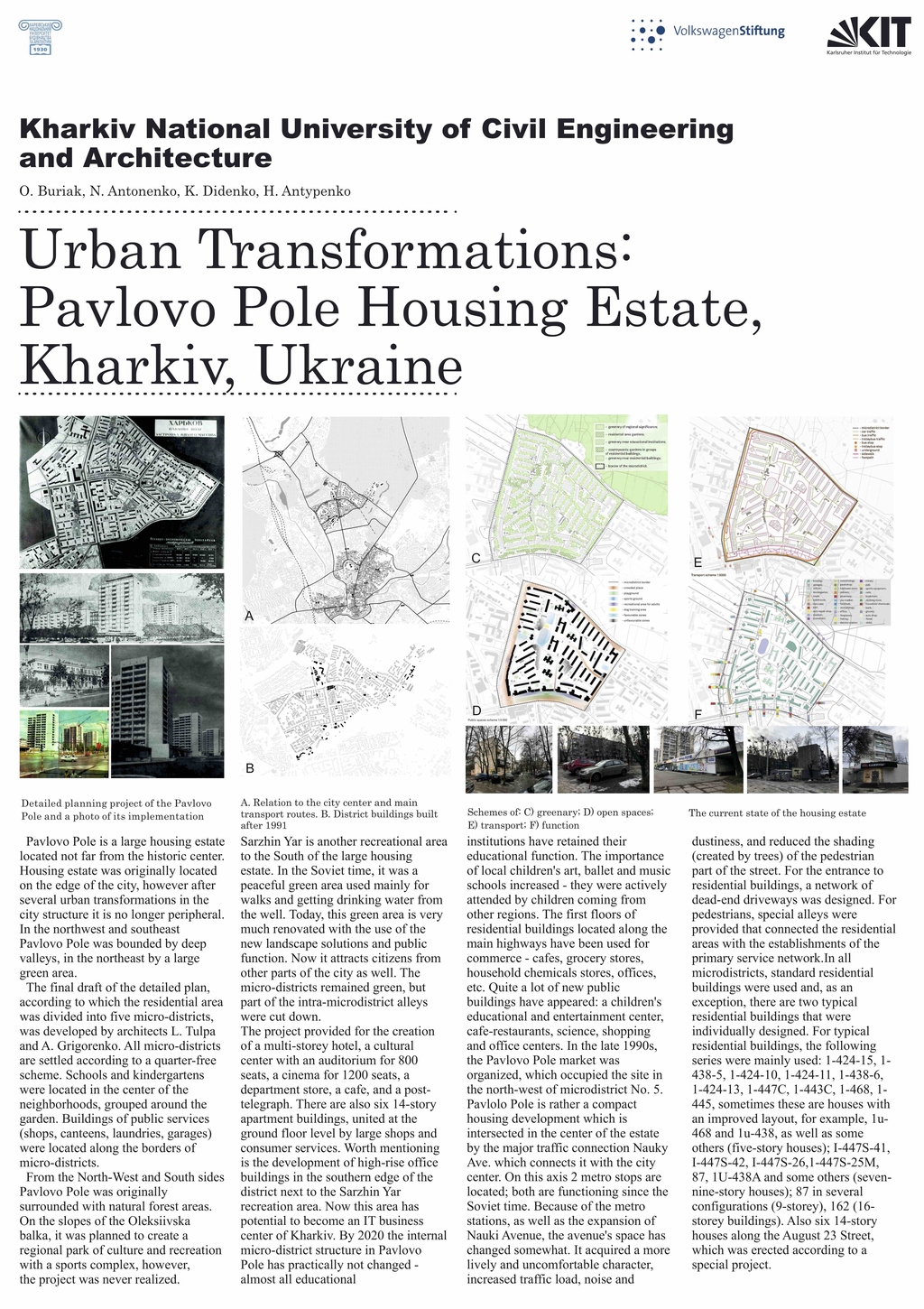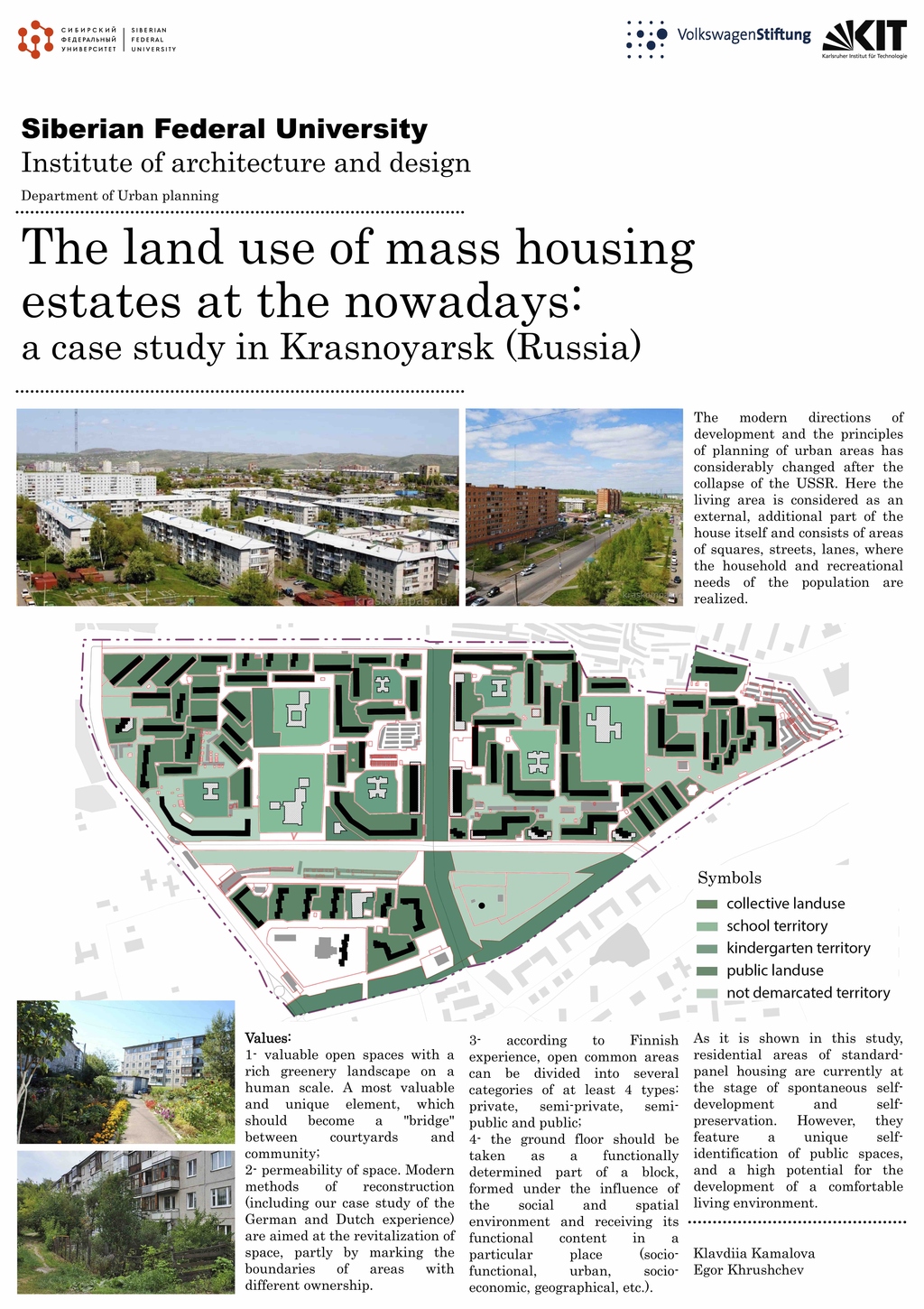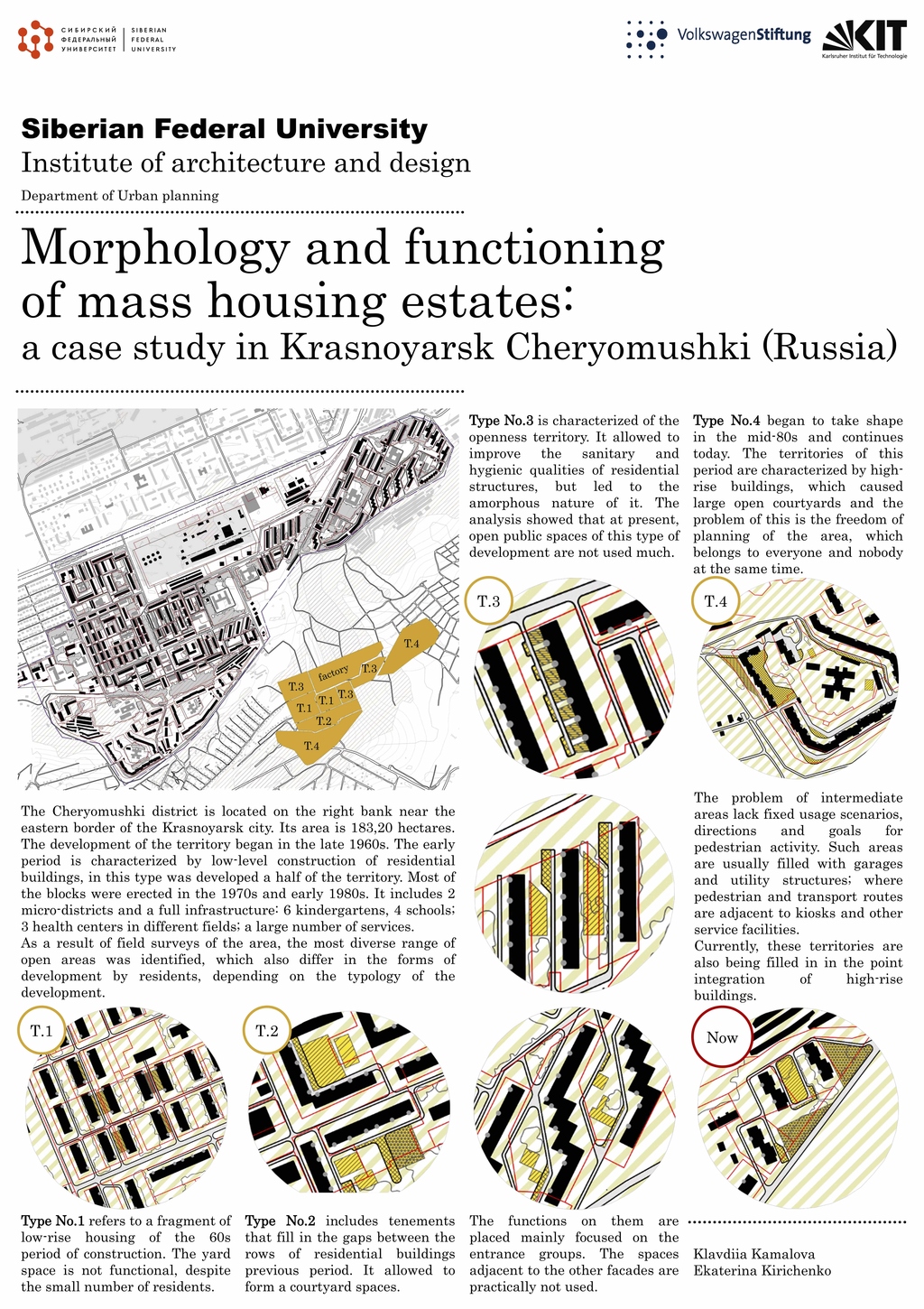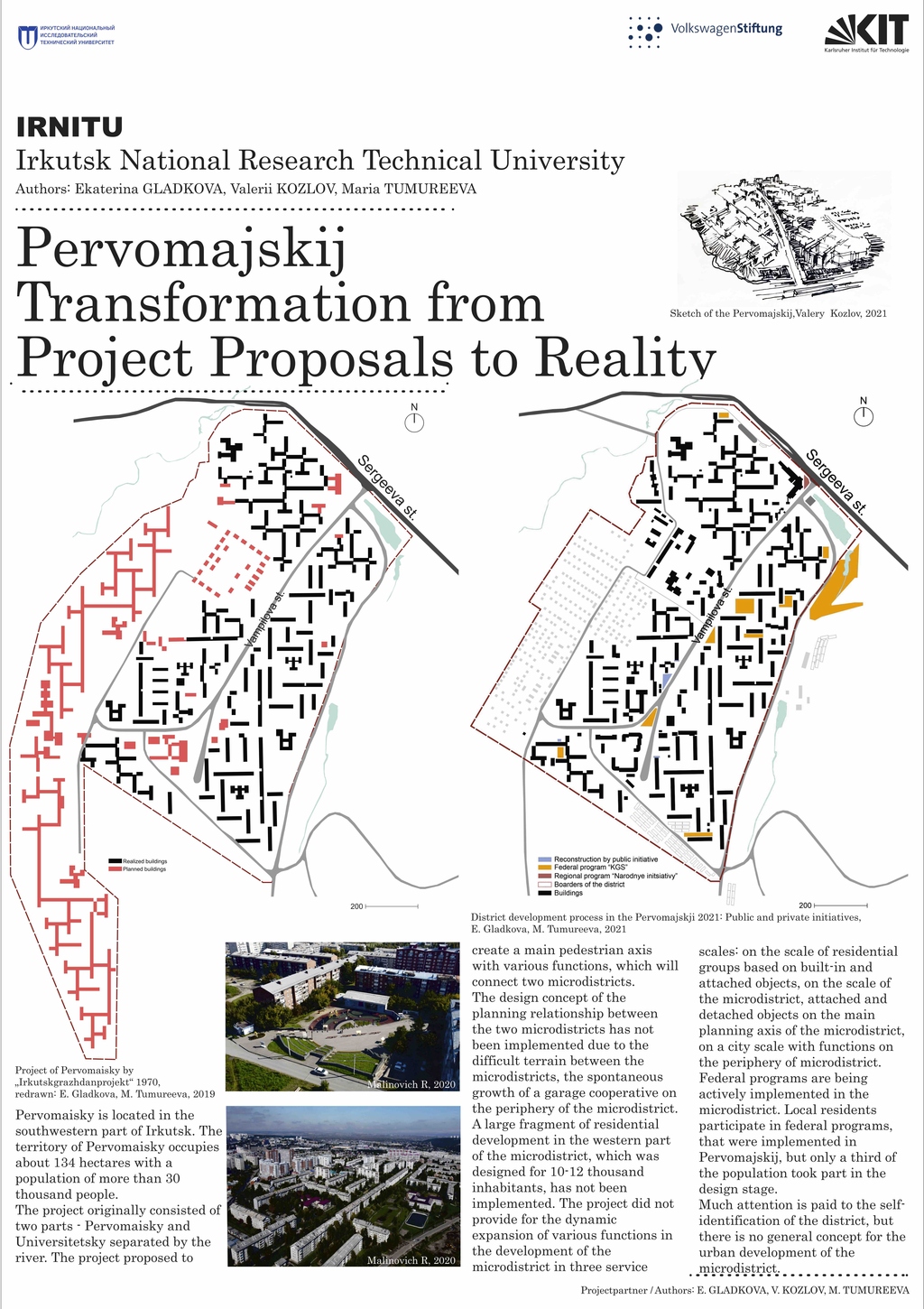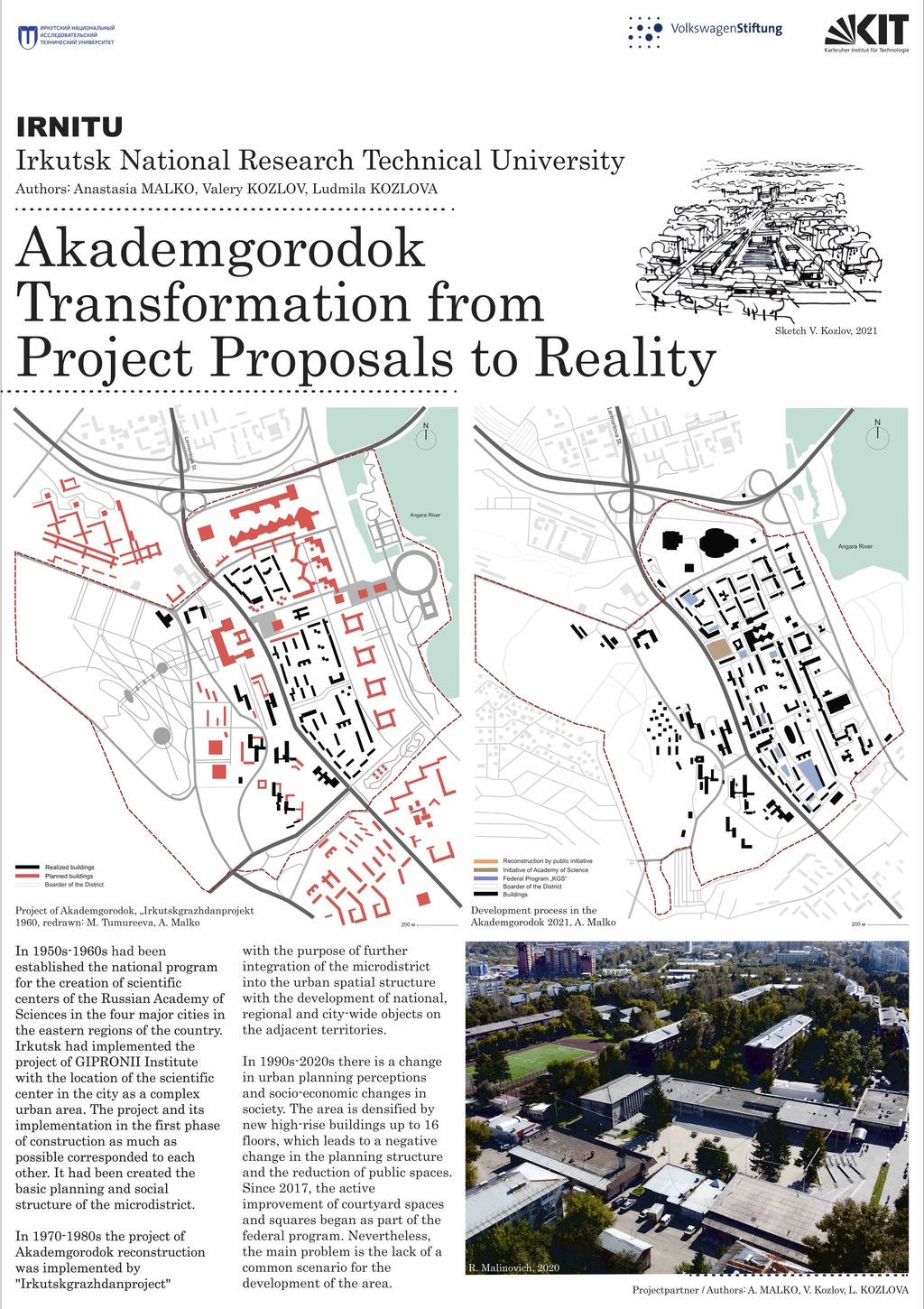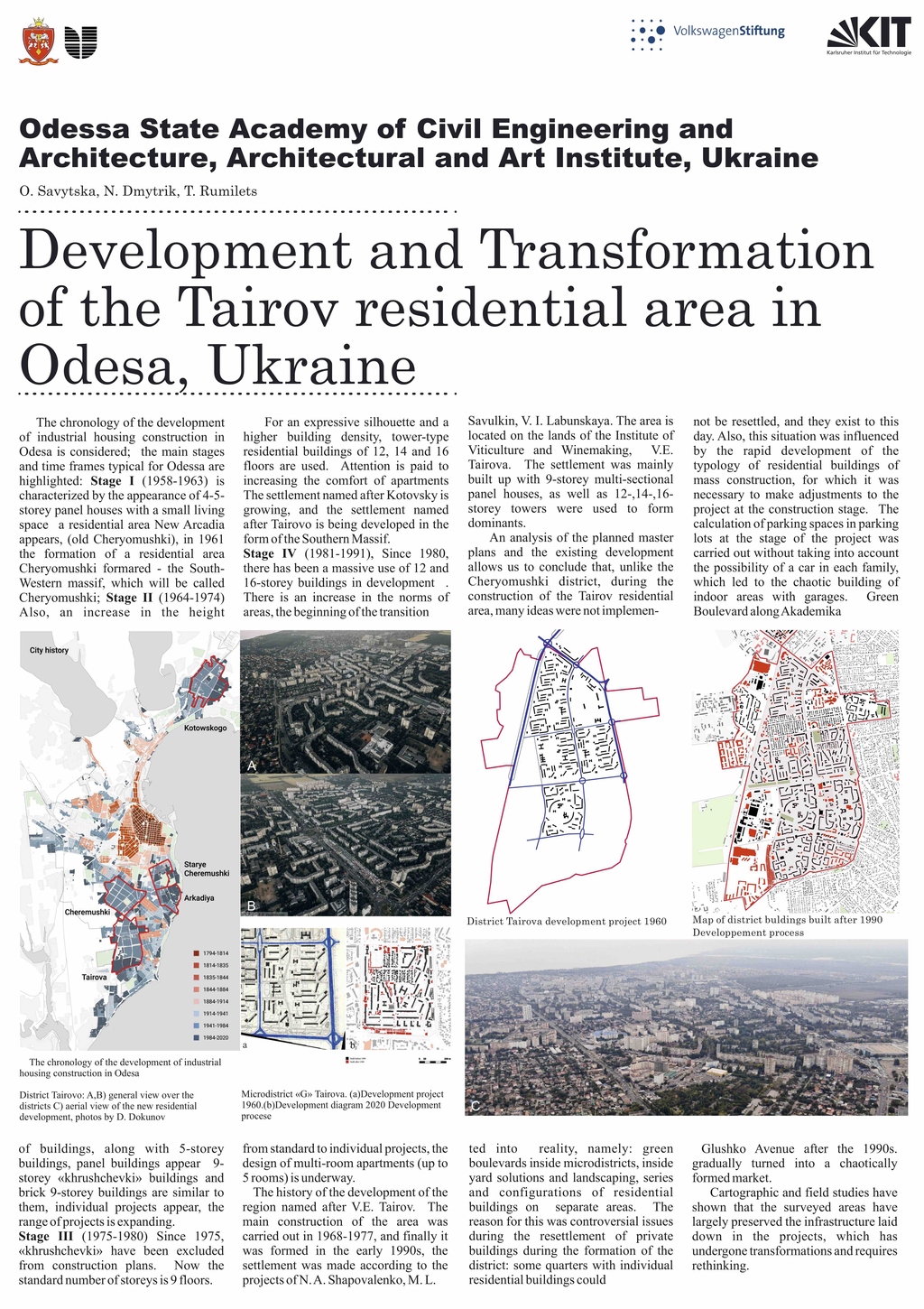Dialogue on Large Housing Estates: Experiences and Perspectives on Housing
The Conference “Dialogue on Large Housing Estates: Experiences and Perspectives on Housing” is the starting event of the second phase of an Russian-Ukrainian-German Research Project. It will discuss the topic of living in large housing estates from an interdisciplinary expert perspective. Speakers and those taking part in discussions will be experts and young academics from the disciplines of architecture and urban planning as well as open-space and transport planning, and from the housing and real estate sector as well as politics and the public administration. A total of nine key speakers is planned, three from Germany, three from Eastern Europe, and three from other countries. In addition young scientists will be selected for contribution to the conference by an open call. The constructional-spatial and design aspects of large housing estates will be looked at here – that is, the supply of dwelling typologies and technical aspects – and the socio-cultural, economic, and instrumental aspects will also be taken into focus. By evaluating international housing projects, the aim of the conference is to gain insights that can be used for the selected case studies in Russia and Ukraine.
Apply Now Submission of Abstracts till January 9th 2021
Applications will be selected after a blind review by at least two peers. To apply submit an extendend abstract of upto 750 words and a short bio of up 120 words. All succesfull applicants will be notified by January 31st 2021
Applications should be send to:
conference largehousingestates ∂does-not-exist.iesl kit edu.
Use "CLHE 2021: CfP – Title of Paper" as your subject line.
Textüberschrift
16 Nov. 2020 – Call for papers open
08 Jan. 2021 – Deadline for abstract submission
22 Jan. 2021 – Notification of selected abstracts
01 Feb. 2021 – Registration opens
28 Feb. 2021 – Deadline for registration
22 Feb. 2021 – Deadline for paper submission
01 March. 2021 – Final Conference programme
The core program of the conference will last for two days. With sessions in the morning and the afternoon on Friday and Saturday. The conference is part of the three year long trilateral research project „The future of modernist housing“ with participants from Russia and the Ukraine. The conference is set as a hybrid format with both online lectures and meetings in person. After each lecture the presentation will be discussed and evaluated. All presentations will be consecutive and the discussion simultan. At the end of each block the topics will be debated by the speakers and the floor all be open for questions. As part of each block young scientist both in their doctorate and post doctorate will have the chance to present their findings to the audience.
During the conference three main topics shall be discussed:
Housing Typologies and Urban Environment
- Privatisation vs. Responsibility
of the municipalities
- Building collectives and cooperatives
- New financing models and
public–private partnerships
Economy and Stakeholders
- Prefabrication, industrialisation, standardisation
- Housing innovations, community and service living
- Supplementary living spaces /
the urban living room
Residents and neighbourhoods
- Images and identities
- from both inside and outside
- Challenges posed by demographic change
- Sense of home?
The qualities and deficits of the residential space and the open spaces near the housing is crucial for the living quality in the settlements. Meanwhile the question how new housing can be generated without compremising the current qualities and potentials has to be discussed. Which spaces should be privatised or are the municipalities best equiped to deal with the current situation? How can collectives and cooperatives be installed and wich role can they play in managing the current stock or even initiate new construction. The applicable planning instruments and laws shall be evaluated and new mechanisms and models for renting, managing, and selling residential space should be considered.All transition and transformation needs investment, but where should the mney come from? Are Public preivate coorperations still a suitable tool to atract investors and waht is the compromise the settlements and the inhabitants will have to accept? Which alternatives can be found from micro lending to central subsidies? Can existing living space be rebuilt in order to meet the needs of residents? AWhich chances and hurdles are linked to the prefabricated substance and forms of innovation can seve these disticts in order to once again be a comfortable home? Concepts for the renovation, further construction and – if necessary – also dismantling of residential buildings should be dicussed alongside new housing concepts – for cooperative housing, community living, assisted living, and so on. What new instruments for planning and managing housing stock could be thought of and what kind of requirements are needed? Lastly the inhabitans role and perspective has to be dicussed and considered. How have the demographics changed over the past three decades? Which identities have formed and are now crucial for the sense of belonging how are the settlements perceived form the outside how can an image be changed if needed and how can divers groups of inhabitants be attracted?


